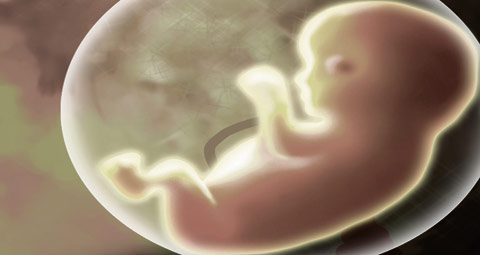BY Martin Dunlop | July 19 | ![]() 0 COMMENTS
0 COMMENTS ![]() print
print

Abortion law on disability grounds is out of date
Termination up to birth over diagnosed disability grounds under scrutiny after Parliamentary report
The Westminster Government must review the Abortion Act and end the discrimination against unborn disabled children, according to a major new Parliamentary report, published earlier this week.
The report says that the current legislation is out-dated, allowing abortion for babies deemed disabled—including children diagnosed with a harelip—up to birth in some cases, and is in urgent need of reform.
Emotive issue
The report sets out a raft of recommendations aimed at reforming the rules governing abortion on the grounds of disability and ending the wide disparities in how the Abortion Act is applied across the country.
“It is time to review the moral, ethical, legal and practical framework within which this provision of the Abortion Act operates and how the law applies to a foetus beyond the age of viability,” the report, which is the work of a cross-party commission, chaired by Conservative backbench MP Fiona Bruce, states.
“Parliament should consider at the very least the two main options for removing those elements which a majority of witnesses believe are discriminatory: that is either reducing the upper time limit for abortions on the grounds of disability from birth to make it equal to the upper limit for able bodied babies or repealing Section 1(1)(d) altogether.”
Mrs Bruce commented that ‘this is an incredibly difficult and emotive issue, which for too long governments of all colours have failed to properly review.’
“Given the advances in medical science and the very positive changes in our attitudes towards disabled people since the relevant law was enacted over 20 years ago it is time to review it,” Mrs Bruce said.
Abortion increase
Following the release of the parliamentary report, Anthony McCarthy, education manager for the Society of the Protection of Unborn Children (SPUC), highlighted that the latest Department of Health abortion statistics show that Ground E abortions for suspected disability in the foetus were recorded as 2692 in 2012, as opposed to 2307 the previous year, an increase of almost 300 abortions.
“Late abortions (post-24 weeks) have risen from 146 to 160, and 99 of these took place after 26 weeks,” Mr McCarthy said. “Nearly all of these will have been for disability, at least according to the law,” Mr McCarthy said. “The Department of Health policy of promoting universal screening to ensure that as many disabled babies as possible are aborted has been in place for many years, so it is difficult to know the reasons for the increase.
“There have been discrepancies between figures published by the Department of Health and those from Eurocat and the National Down Syndrome Cytogenic Register on abortion for disability. Possible prior underreporting by the Department of Health may explain the situation, though trends in later-age pregnancies may also be a factor. Either way, the double-standard between post-birth care for the disabled and the NHS-funded elimination of the disabled before birth continues apace.”











